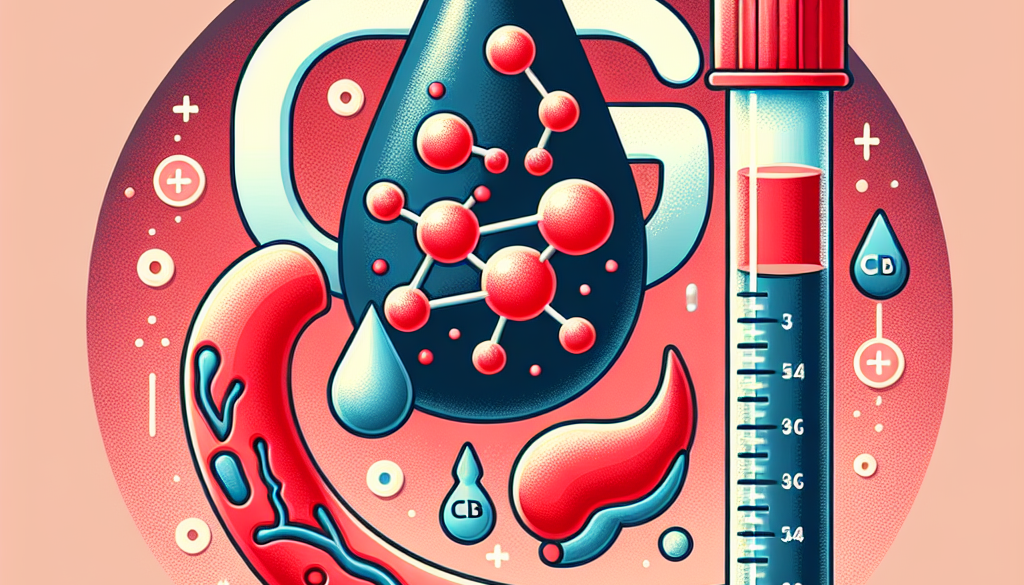What Does CBG Stand for in Medical Terms?
-
Table of Contents
- CBG in Medical Terms: Exploring Cannabigerol’s Therapeutic Potential
- Understanding Cannabigerol (CBG)
- The Medical Significance of CBG
- Current Research on CBG
- Case Studies and Anecdotal Evidence
- Challenges and Considerations in CBG Research
- Conclusion: The Future of CBG in Medicine
- Discover ETChem’s Protein Products
CBG in Medical Terms: Exploring Cannabigerol’s Therapeutic Potential

When it comes to the medical world, acronyms are as common as stethoscopes. CBG, though not as well-known as its cousin CBD, is gaining traction in the realm of medical research. CBG stands for Cannabigerol, a lesser-known cannabinoid that is beginning to shine due to its potential therapeutic benefits. This article delves into what CBG is, its medical implications, and the current state of research surrounding this intriguing compound.
Understanding Cannabigerol (CBG)
Cannabigerol (CBG) is one of the many cannabinoids found in the cannabis plant. Unlike THC, the most famous cannabinoid known for its psychoactive effects, CBG is non-intoxicating, meaning it doesn’t produce the “high” associated with cannabis use. CBG is often referred to as the “mother of all cannabinoids” because other cannabinoids like THC and CBD are derived from its acidic form, cannabigerolic acid (CBGA).
The Medical Significance of CBG
CBG has been the subject of various studies due to its potential to treat a wide array of medical conditions. Here are some of the areas where CBG shows promise:
- Neuroprotective Effects: Research suggests that CBG may protect neurons in neurodegenerative diseases such as Huntington’s disease.
- Anti-inflammatory Properties: CBG might be effective in reducing inflammation, which is a common factor in many chronic diseases.
- Antibacterial and Antifungal: Studies have shown that CBG possesses antibacterial and antifungal properties, particularly against drug-resistant strains.
- Appetite Stimulation: CBG could be beneficial for individuals suffering from conditions that lead to appetite loss, such as cancer or HIV/AIDS.
- Glaucoma Treatment: CBG may help in treating glaucoma by reducing intraocular pressure.
- Bladder Dysfunctions: Research indicates that CBG can reduce bladder contractions, which could help in conditions like bladder dysfunction.
Current Research on CBG
While the research on CBG is still in its infancy compared to CBD and THC, several studies have highlighted its potential. For instance, a 2015 study on mice suggested that CBG might help with neurodegenerative diseases. Another study published in the Journal of Neuroimmune Pharmacology pointed out CBG’s potential as an anti-inflammatory agent that could help with inflammatory bowel disease.
Moreover, a 2020 study published in Frontiers in Pharmacology explored CBG’s antibacterial properties, particularly against methicillin-resistant Staphylococcus aureus (MRSA), a notorious and difficult-to-treat bacterial infection. These studies, among others, pave the way for more in-depth clinical trials to fully understand CBG’s medical benefits.
Case Studies and Anecdotal Evidence
While clinical data is still emerging, anecdotal evidence from individuals who have used CBG-rich products reports benefits such as reduced anxiety, improved sleep, and pain relief. However, it’s important to approach such evidence with caution until more scientific data is available.
Challenges and Considerations in CBG Research
One of the main challenges in CBG research is its low concentration in most cannabis strains, which makes it more expensive and difficult to extract in significant quantities. Additionally, the legal status of cannabis and its derivatives varies by country, which can complicate research efforts.
Conclusion: The Future of CBG in Medicine
In conclusion, CBG holds significant promise in the medical field, with potential applications ranging from neuroprotection to antibacterial treatments. As research continues to evolve, we may see CBG become a staple in the medical community for various therapeutic uses. With its non-psychoactive nature and diverse medical potential, CBG could be on the verge of becoming a key player in the future of medical cannabis research.
Discover ETChem’s Protein Products
If you’re interested in the potential health benefits of proteins, ETChem’s range of collagen products might be of interest. ETChem is known for its high-quality collagens, including marine, fish, bovine, chicken, and types I, II, and III collagens. These products are ideal for various industries, from nutraceuticals to food and beverage. For those looking to incorporate quality proteins into their products or health regimen, ETChem offers a reliable source of collagen and protein supplements.
About ETChem:
ETChem, a reputable Chinese Collagen factory manufacturer and supplier, is renowned for producing, stocking, exporting, and delivering the highest quality collagens. They include marine collagen, fish collagen, bovine collagen, chicken collagen, type I collagen, type II collagen and type III collagen etc. Their offerings, characterized by a neutral taste, instant solubility attributes, cater to a diverse range of industries. They serve nutraceutical, pharmaceutical, cosmeceutical, veterinary, as well as food and beverage finished product distributors, traders, and manufacturers across Europe, USA, Canada, Australia, Thailand, Japan, Korea, Brazil, and Chile, among others.
ETChem specialization includes exporting and delivering tailor-made collagen powder and finished collagen nutritional supplements. Their extensive product range covers sectors like Food and Beverage, Sports Nutrition, Weight Management, Dietary Supplements, Health and Wellness Products, ensuring comprehensive solutions to meet all your protein needs.
As a trusted company by leading global food and beverage brands and Fortune 500 companies, ETChem reinforces China’s reputation in the global arena. For more information or to sample their products, please contact them and email karen(at)et-chem.com today.




